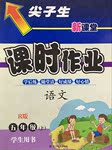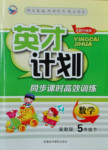题目内容
| 完形填空 | ||||
| In a land far away, once upon a time there was great poverty (贫困), and only the rich could manage without great__1_. Three of those rich men and their servants were__2_together on a road when they came to a very__3_village. The first could not stand seeing the poverty, __4__he took all the gold and jewels from his wagons (四轮载重马车) and shared__5_out among the villagers. He wished them all the best of luck, and he left. The second rich man, seeing the__16__situation, stopped for a short time and gave__7_all his food and drink, since he__8_see that money would be of little__9_to them. He made sure that they each 10 their fair share and would have enough food to 11 for some time. Then, he left. The third rich man, on seeing such poverty, 12 and went straight through the 13 without stopping.The two other rich men saw this from a distance and commented with each other 14 the third rich man lacked sympathy. It was 15 that they themselves had been there to offer help. However, three days later, they 16 the third rich man, who was coming in the opposite direction. He was 17 travelling quickly, but his wagons, 18 the gold and valuables they had been 19 , were now full of farming tools and bags of 20 . He was rushing back to help them out of poverty. | ||||
|

 尖子生新课堂课时作业系列答案
尖子生新课堂课时作业系列答案 英才计划同步课时高效训练系列答案
英才计划同步课时高效训练系列答案
| |||||||||||||||||||||||||||||||||||||||||||||||||||||||||||||||||||||||||||||||||||||||||||||||||||||||||||||||||||||||||||||||||||||||||||||||||||||||||||||||||||||||||||||||||||||||||||||||||||||||||||||||||||||||||||||||||||||||||||||||||||||||||||||||||||||||||||||||||||||||||||
| 完形填空 | ||||
|
In 1941 | ||||
|
| 完形填空 | ||||
| In 1883, a creative engineer, John Roebling, was inspired to build a splendid bridge connecting New York with Long Island. However, experts throughout the world thought that this was__1__. Even so, Roebling could not__2__the idea in his mind. After much discussion, he__3__convince his son Washington, an up-and-coming engineer, that the bridge in fact could be built. They hired their__4__  and and began to build their dream bridge. Only a few months__5__the project was underway, a tragic on-site accident killed John Roebling and__6__injured his son, leaving him brain-damaged and unable to move or__7__. Surely now the project would have to be__8__. Though Washington Roebling lay in his hospital bed, he was not__9__ and his mind remained as__10__as it was before the accident.Suddenly an idea__11__him. All he could move was one finger, so he__12__the arm of his wife with that finger, __13__to her that he wanted her to call the engineers again.Then he used the same method of tapping her arm to tell the engineers what to do. For 13 years Washington tapped out his__14__with one finger until the bridge was__15__ completed. Perhaps this is one of the best examples of never-say-die attitude that__16__a terrible physical disability and achieves an impossible__17__. Often when we face difficulties in our daily lives, our problems seem very small__18__what many others have to face. The Brooklyn Bridge shows us that even the most__19__dream can be realized with__20__no matter what the chances are. | ||||
|
| 完形填空 | ||||
| In the depths of my memory , many things I did with my father still live. These things have come to represent,in fact, what I call 1 and love. I don't remember my father ever getting into a swimming pool. But he did 2 the water. Any kind of 3 ride seemed to give him pleasure. 4 he loved to fish; sometimes he took me along. But I never really liked being on the water, the way my father did. I liked being 5 the water, moving through it, 6 it all around me. I was not a strong 7 , or one who learned to swim early, for I had my 8 . But I loved being in the swimming pool close to my father's office and 9 those summer days with my father,who 10 come by on a break. I needed him to see what I could do. My father would stand there in his suit,the 11 person not in swimsuit. After swimming,l would go 12 his office and sit on the wooden chair in front of his big desk, where he let me 13 anything I found in his top desk drawer. Sometimes, if I was left alone at his desk 14 he worked in the lab, an assistant or a student might come in and tell me perhaps I shouldn't be playing with his 15 . But my father always 16 and said easily,"Oh, no,it's 17 . " Sometimes he handed me coins and told me to get 18 an ice cream… | ||||
|
 when Anti-
when Anti- Japanese War was still going on, Xiamen University that Ma Zuzhao aimed to
Japanese War was still going on, Xiamen University that Ma Zuzhao aimed to